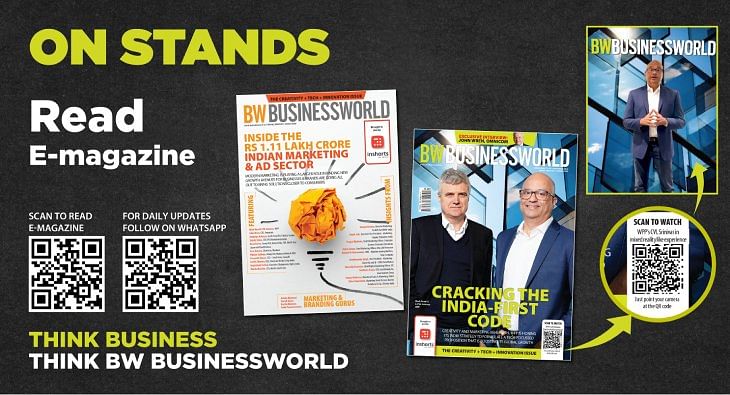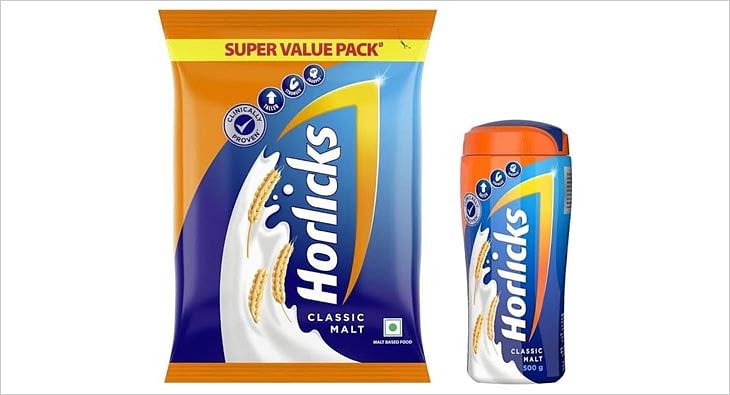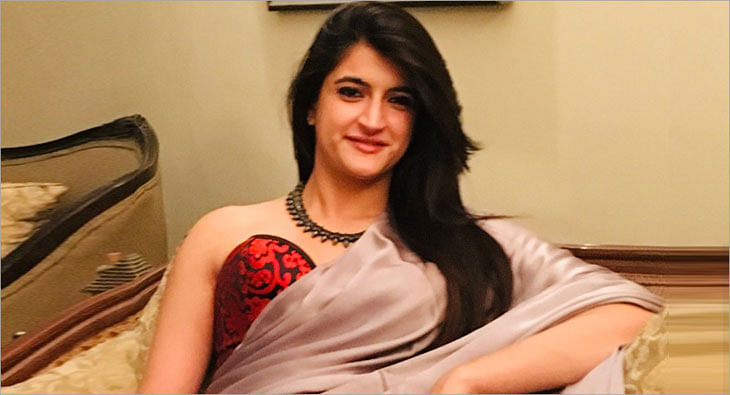IMPACT Person Of The Year 2013 to be announced today!
The year's IPOY winner will be unveiled at a glittering ceremony tonight in Mumbai. Union Minister for Law & Justice, Communication & IT, Kapil Sibal will be the chief guest

The countdown for the highly awaited and coveted IMPACT Person Of The Year (IPOY) is finally over. The year’s IPOY winner will be unveiled at a glittering ceremony tonight, December 6, at the ITC Grand Central, Lower Parel, Mumbai. Union Minister for Law and Justice, Communication and Information Technology, Kapil Sibal will be the chief guest at the event.
Each year, the award is given to a person or group of people who have made maximum impact on and have influenced the industry through their contributions to the media, marketing and advertising world.
As we near the final announcement, we asked people across the media fraternity what they think about the award and this year’s nominees.
Commenting on IPOY and the nominees, Sunil Lulla, MD and CEO, Times Television Network said, “It is good to see the names that have been showcased in the past years. I think they have all been very deserving and I am glad that exchange4media Group puts this together to showcase the best names in the media industry.”
Nandini Dias, CEO, Lodestar UM feels that it is a really tough decision to award IPOY as the awards hone it down to a single person in the industry. “There are different people across different domains and verticals, across various media, and to come down to a single person takes quite a bit of guts and gumption. The very fact that IMPACT is trying to hone on every year to a single person is kudos to them,” she added.
Neeraj Roy, MD and CEO, Hungama Digital said, “IPOY is a wonderful initiative that recognises leaders year on year. This year too the line-up of nominees is wonderful, and I wish them all the very best.”
Talking about the award property as a reputed one, Shubhranshu Singh, Marketing Director, India and South Asia, Visa stated, “There are awards a-plenty, but what matters is the social recognition attached to it. It is evident for everybody to see that there is mass consensus, that there is a fair, transparent process, and the way in which the choices have been made. With the people who have been rewarded in the past, nobody can dispute their significance and clearly above all, contribution in that particular period of time; so it has recognition from the community of stakeholders who genuinely matter. Congratulations to the IMPACT team for making it such a wonderful property.”
Commenting on the nominations, Karthi Marshan, Executive Vice President and Head – Group Marketing, Kotak said, “Properties like this which acknowledge and celebrate professional and individual accomplishment are certainly important. I commend IMPACT for making the effort. I think every candidate on the shortlist deserves to be win. I have voted for my choice, and I wish them all luck.”

The nominees for this year’s Impact Person of the Year Award (in no particular order) are CVL Srinivas, CEO, GroupM South Asia – nominated for leading the company into winning new businesses and launching several initiatives in digital, content, experiential marketing and analytics; Bharat Patel, Former Chairman, ISA and Hemant Bakshi, Chairman, ISA – for honing the reputation of the ISA as a credible, pro-active body working for a better environment in the industry; Punit Goenka, MD and CEO, Zee Entertainment Enterprises Limited (ZEEL) – for introducing the network to the world and playing a crucial role in the industry’s paradigm shift towards digitisation and setting up BARC; Rahul Sharma, Co-founder, Micromax Informatics – for helming the transformation of the 13-year-old start-up from a supplier of parts to Nokia to being one of the most consumed mobile and tablet brands in India; Rajan Anandan Managing Director, Google India – for working relentlessly to build Google’s search business and the online video platform YouTube in the country; Sameer Suneja, Global CEO, Perfetti Van Melle – for spearheading the brand’s high growth, by taking risks with innovative product positioning and cutting-edge ad campaigns; and Vineet Jain Managing Director, Times Group – for transforming the company into a highly regarded media conglomerate, with substantial properties in print, radio, television, digital and new media.
Read more news about Marketing News, Advertising News, PR and Corporate Communication News, Digital News, People Movement News
For more updates, be socially connected with us onInstagram, LinkedIn, Twitter, Facebook Youtube, Whatsapp & Google News
About 60% Instagram influencers in India have fake followers: Report
As per a media report, influencer marketing platform KlugKlug has found that only 2.48 million profiles out of the 8 million have ‘high-quality’ followers
Two of three Instagram influencers in India have more than 60 per cent fake followers, a report by influencer marketing platform KlugKlug shows.
This is particularly true for the beauty and fashion sector, the report noted.
Other countries that have influencers with fake followers are Brazil, the UAE and Indonesia.
As per media reports, such Instagram fake followers can be roped in for as little as Rs 10 to a high of Rs 1,000.
According to Klug Klug India, only 2.48 million profiles out of the 8 million have high-quality followers.
A number of other categories have also been buying fake followers, media reports have noted.
As per a media expert, quoted in the reports, brands are finding it difficult to identify and curb the menace of fake followers and bots.
In a recent setback for influencers the Central Consumer Protection Authority (CCPA) has said those promoting activities like gambling and betting are equally liable as the companies promoting the same.
15% consumers enhance their user experience through virtual assistants: Kantar report
According to Soumya Mohanty, Managing Director & Chief Client Officer- South Asia, Insights Division, Kantar, less than 1% of ads get tested due to lack of time
Marketing data and analytics firm Kantar has unveiled a report that studies the burgeoning AI market to dish out actionable insights for marketers. Within AI, virtual assistants are the fastest growing segment. The report noted that 15% consumers enhanced their ‘user experience through virtual assistants’. This segment is the fastest growing at 27% YoY.
According to the study, while ‘fitness’ and ‘social media’ apps are amongst the leading categories, driving AI adoption (with an average of 2.3 AI led features embedded in these applications), segments like ‘BFSI’, ‘job search’ and ‘short video’ apps are relatively slow in AI adoption, with an average of 1.2 features each. Entertainment apps, digital commerce and pharmacy apps stand somewhere in the middle with 2.0 & 1.8 AI features being adopted, respectively.
Additionally, the report said that while 90% of marketing and sales leaders think their organisations should be using AI “often”, 60% said their organisations “rarely or never” do. Speaking to exchange4media, Soumya Mohanty, Managing Director & Chief Client Officer- South Asia, Insights Division, Kantar highlighted that currently there are a lot of organisations who know that there is something called AI, but haven’t yet figured out how it could help them holistically.
“A lot of the AI just gets used for efficiency purposes, so repetitive tasks get automated,” Mohanty pointed out. Data also plays a big role in why certain organisations are struggling with how to use AI.
For instance, Mohanty explained that in segments like D2C, telecom etc. there is a lot of primary or first-party data. So being able to leverage AI also gets easier. “It's the traditional large sort of FMCG type companies where data sits in silos. You don't really have one single source of data where it's a little difficult to use the full power of AI, because the full power of AI also needs a lot of data sitting in a structure that you can use,” she added.
So, can AI help marketers have a unified view of data? No, says Mohanty. “AI does not help marketers get a unified view of data. Once you have data in a unified way, AI can help you do a lot more with that data.”
According to her, organisations today need to have good, strong data warehousing. “It needs to make sense because a lot of the silos are also because everybody owns one part of it. A lot of people have their own analytics teams internally, so there are a lot of agendas and stakeholders. And then we say data is in silos because fundamentally, when you're doing something internally, different people have different stakes in it,” Mohanty added.
Puneet Avasthi, Senior Executive Director, South Asia, Insights Division, Kantar shared that most organisations are now heavily investing in creating first-party data sets. “Companies that have first party data about their consumers and transactions or interactions that they have with the brand are going to be able to leverage that more effectively to create sharper profiles for the brand as such for the consumer and build relevant recommendations at the right moments.
Panning out she also highlighted how AI can be leveraged to enhance market research and make it more accessible, a part of which Kantar is itself involved in. “A lot of times people say that we can't test an ad because we don't have time. So less than 1% of advertising gets tested and just gets put out. Does it work when it gets put out? It is the question the audience should answer, because so many times, it backfires,” Mohanty shared. Apparently, digital particularly doesn't get tested because organisations just do a/b testing and leave it at that.
Speaking of preferred use cases of AI, Avasthi added that various businesses and brands are looking at creating an experience for the brand that is in line with the brand's architecture and progress across all touch points. “That is something that the AI engines that are working behind can ensure, that all such interactions are consistently delivered across different virtual assistants or chatbots that are available to the consumer,” he said.
The other use case, according to Avasthi, is ensuring that there is greater visibility for the brand in the digital sphere as such, through various recommendation engines, when a certain need is being looked for and to throw up the right kind of information about the brand so that the brand message is amplified in the mind of the consumers.
Among other insights from the Kantar AI report is that 88% consumers used AI based algorithms which analysed their preferences, behaviours, and interests to create personalised recommendations for tailored experiences. This segment grew at 6 % YoY. At 21%, ‘smart home automation’ is a smaller segment but growing at 25% YoY.












 Share
Share
